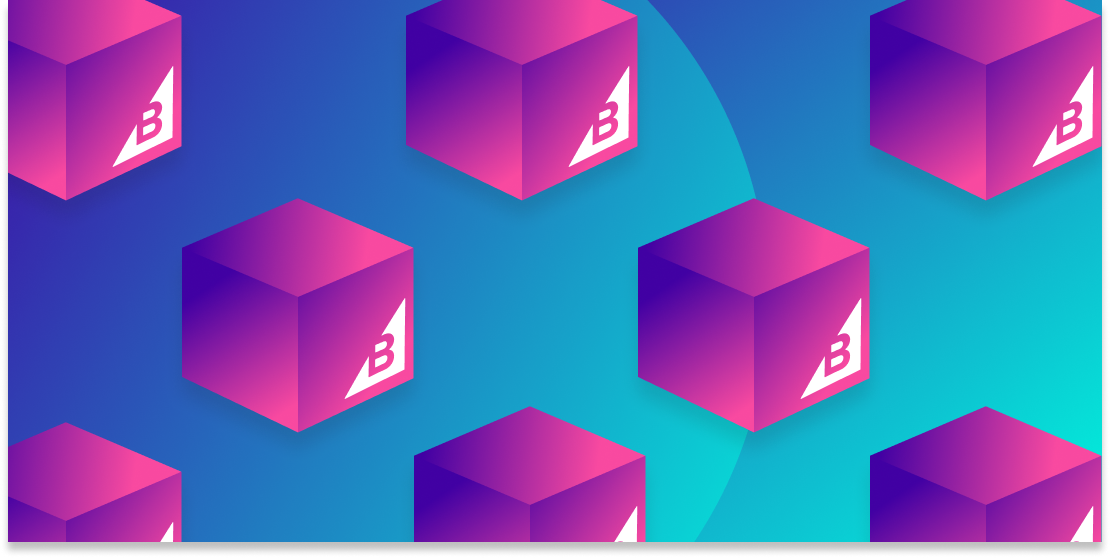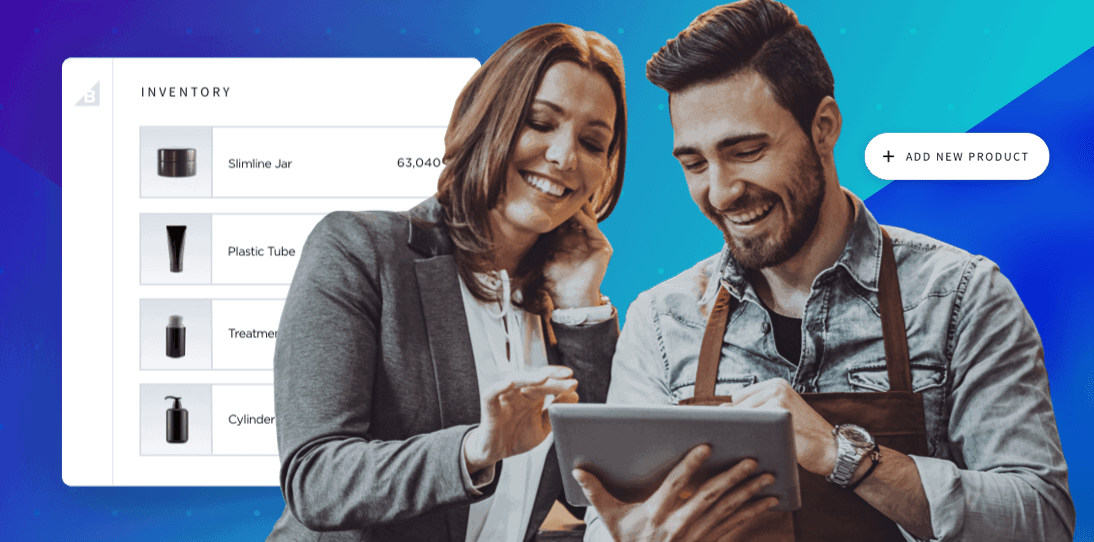- Enterprise
- Essentials
The Best-Kept Secrets of Top B2B Ecommerce Brands

B2B ecommerce brands weren’t always known for offering stellar customer service or even having a website that wasn’t stuck in the 1990s. However, as competition tightens in the business-to-business market, brands are scrambling to offer a digital customer experience tantamount to their business-to-consumer (B2C) counterparts.
B2B businesses sell goods (eg: raw materials, component parts, and enterprise software) and professional services (eg: accounting services or marketing management) to other businesses rather than individual consumers.
The distinguishing feature between B2B and B2C ecommerce transactions is that the buyer of a B2B product is not the end user. For example, a business may buy parts to manufacture a product that is sold to the end user.
Consequently, building customer relationships in the B2B ecommerce market means communicating with multiple decision-makers across numerous touchpoints, navigating a long sales cycle, and offering custom solutions.
Data shows that a growing proportion of B2B transactions are taking place online. Statista predicts that 17% of B2B sales will be generated digitally in 2023, up from 13% in 2019. In fact, research from McKinsey found that 65% of B2B companies were exclusively selling online in 2022.
Key functions of successful B2B ecommerce brands
The most profitable B2B brands have a few things in common: they build trust with their clients through seamless digital commerce experiences and personalization.
Here are some pointers for standing out in the B2B ecosystem:
B2C-like shopping.
B2B customers expect a personalized experience when interacting with brands, including personalized product recommendations, content, and pricing or promotions. Meanwhile, B2B vendors must design custom solutions to help their clients solve business problems.
AI-powered personalization — tailoring the purchase experience based on customer behavioral data — enables B2B brands to act as trusted consultants who can anticipate business needs.
Outstanding customer experience.
Differentiation in B2B hinges on providing an exceptional customer experience, including technical support and after-sales care. B2B contracts can be expensive and potentially difficult to get out of, so B2B buyers want to ensure they’re in good hands.
B2B sales teams must win over multiple decision-makers to make a sale.
Consequently, B2B brands increasingly rely on backend systems such as inventory management, procurement and customer relationship management (CRM) software to automate processes (eg: follow-up emails, content delivery and scheduling) and run a tight operation.
Custom quotes.
Custom quote generation is often the deciding factor in a B2B sale because customers have unique requirements that cannot be met by off-the-shelf solutions.
Here are some other reasons to provide custom quotes:
Competitiveness: Pricing is a major factor in winning a sale. Custom quote generation lets businesses offer competitive pricing specific to each customer’s needs.
Transparency: B2B brands build trust by being transparent about their pricing.
Upsell and cross-sell opportunities: By understanding customer needs, B2B businesses can recommend additional solutions.
Dynamic pricing.
B2B brands can offer dynamic pricing by adjusting prices in real-time based on market conditions, customer behavior, inventory levels, and other factors. Additionally, many B2B brands are shifting toward recurring revenue models, offering ongoing services and support rather than one-time purchases.
Here are some ways B2B brands can offer dynamic pricing:
Real-time data: Adjusting price based on supply and demand and/or inventory levels.
Customer data: Pricing is determined by customer behavior, such as purchase history and bulk orders, to reward customer loyalty.
Competitor pricing: Adjusting price based on real-time competitor pricing data.
Multichannel sales.
Multichannel sales provide customers with various options to purchase products and services. B2B brands must have a digital presence on multiple platforms to facilitate different types of transactions and to meet customers in their preferred channels.
Ecommerce website: The seat of your operations, your ecommerce site serves not only as a point-of-sale for online shopping, but also as a knowledge center, troubleshooting resource and self-service platform for customers. Customers should be able to learn more about your product, see case studies or samples of past work, understand pricing, and request technical support.
Marketplaces: A B2B marketplace is a platform where businesses sell products and services to other businesses. Examples include Amazon Business and Alibaba.
Mobile sales: Offering mobile apps or mobile-responsive websites lets customers browse and purchase on their mobile devices.
Social media sales: While social selling is generally best for tangible consumer goods, B2B brands can enable customers to book consultations or interact with customer support via social platforms.
Direct sales: Sales representatives and account managers can provide personalized advice on products or services.
Social proof.
B2B ecommerce brands use social proof as a marketing tool to build credibility, trust, and influence purchase decisions. Social proof is a psychological phenomenon where people are swayed by others’ actions.
Consequently, endorsements and praise from others enhance your online store’s credibility.
Here are some ways to demonstrate social proof:
Customer reviews and testimonials: Customers want honest feedback from B2B buyers like them before purchasing.
Case studies and success stories: Case studies and success stories demonstrate the results you’ve achieved for clients.
Influencer endorsements: Partnerships with micro-influencers (subject matter experts with a smaller following than traditional influencers) build credibility with a niche audience.
User-generated content: Repost photos, videos, and other media your customers have posted on social media mentioning your product or service.
Trust badges and certifications: Displaying a badge from a trusted industry association or certification provides evidence of quality standards.
Use customer groups for a personalized experience.
Customer groups represent segments of customers with similar characteristics or needs. B2B brands can provide targeted marketing and personalized experiences for each group.
An example of this is custom content: a B2B brand that sells software to small businesses and large enterprises will need a separate content strategy and sales approach for each customer type.
Brands can also use customer groups for targeted marketing campaigns. Other potential personalizations include pricing (eg: a volume discount to large enterprises or a loyalty discount to long-time customers), customer service and product recommendations.
Have responsive design.
Responsive design ensures your B2B ecommerce website functions properly on any device and is accessible to all users. Ecommerce businesses can lose sales if their website loads slowly or lacks the same functionality across devices.
Moreover, Google’s algorithm evaluates website user experience as a criterion for search engine rankings — making responsive design a key element of search engine optimization (SEO).
Finally, B2B brands can reduce development costs and maintenance efforts by creating a single website optimized for desktop and mobile formats.
Search engine optimization.
SEO improves an ecommerce website's visibility and increases referrals from search engines. This means optimizing the website for search intent and using industry-specific keywords.
Here are some best practices B2B brands should follow:
Keyword research: Identify the keywords and phrases your target audience is searching for.
On-page optimization: Optimize your website’s content and HTML source code using title tags, meta description, image alt text, headers, and internal linking.
Technical optimization: Optimize website speed, use structured data and fix website errors to ensure your website is easily crawlable by search engines.
Link building: Acquire high-quality links from authoritative websites to improve search engine rankings.
Local SEO: Complete your Google Business profile and build local backlinks to improve visibility in localized search results.
Integrate with multiple tools to improve service.
B2B brands are increasingly turning to integrated software systems to provide a cohesive customer experience. For example, integrating ecommerce catalog management software with inventory management systems ensures website product information is reliable and up-to-date.
Here are some other software tools worth investing in:
Ecommerce platforms: A comprehensive software application that enables businesses to build custom storefronts, create a product catalog, incorporate shopping cart and checkout functionality, accept various payment options, manage orders and inventory, and access analytics tools.
Customer Relationship Management (CRM) systems: CRM systems enable businesses to track customer interactions, manage leads and customer data, and automate the sales process.
Payment gateways: Offering multiple payment options gives customers flexibility and security.
Marketing automation software: Planning marketing campaigns in advance ensures messaging is sent to the right customer segments when purchase intent is high. This includes email marketing, social media marketing, website pop-ups, loyalty programs, and more.
Customer feedback tools: Gathering feedback from customers enables businesses to identify areas for improvement and to repurpose reviews and testimonials as social proof for marketing purposes.
Analytics and reporting tools: These tools provide insights into customer behavior to help businesses make data-informed decisions.
Mobile shopping app.
A mobile app provides customers with a convenient way to place orders, track shipments, view invoices and manage their accounts remotely. Apps typically require account creation, enabling businesses to offer a higher level of personalization through push notifications, product recommendations, and other custom features.
If you offer a software product, having a companion mobile app may be the deciding factor for a potential B2B client.
For example, technicians in manufacturing plants need to access maintenance management software on a mobile device as they travel from one job site to another.
Free B2B Masterclass
Want to grow B2B online sales faster? Start now by enrolling in our free B2B Masterclass..
Get StartedOutstanding B2B brands with BigCommerce
At BigCommerce, we love to celebrate our customers’ wins and watch their business grow using our award-winning ecommerce platform.
Here’s a look at a few heavy-hitting B2B industry brands that have found success with our ecommerce solution:
Berlin Packaging.
Since its opening in 1938, Berlin Packaging has been a family-run operation. Today, they fulfill B2B orders for modern glass and plastic containers for nearly every industry. The company chose BigCommerce as its B2B ecommerce platform of choice for its flexibility and functionality, which enabled them to create unique system integrations via the BigCommerce API.
This includes features like:
Specialized item attributes.
Custom inputs.
An interface with the existing ERP.
Custom shipping and handling abilities for customers.
Since using BigCommerce, Berlin Packaging has seen a 27% increase in conversion rates YoY and a 2,969% increase in web leads YoY.
Clarion Safety Systems.
Clarion Safety Systems is a designer and manufacturer of product safety labels and signage with over 25 years of experience in the B2B market.
When they discovered the system they’d been using for online sales was no longer supported by their order processing system, they turned to BigCommerce to improve website user experience — a priority seeing as 75% of Clarion’s revenue comes through internal site search. Already, traffic is up 43% YoY.
Casey’s Distributing.
A sports novelties distributor, Casey’s Distributing works works with several thousand resellers across North America, distributing for over 50 manufacturers and more than 50,000 SKUs.
Soon, the company will launch an app off of BigCommerce’s API to grow that list of resellers even further — allowing other BigCommerce customers to expand their catalog and grow their ecommerce sales with the click of a button. Since using BigCommerce, Casey’s has seen an 8x increase in productivity.
A New Approach for New Expectations
BigCommerce’s B2B ecommerce platform enables you with powerful features to readily meet — and exceed — your buyers’ expectations.
B2B SolutionsThe final word
By using the right software tools and focusing on the customer experience rather than the competition, B2B ecommerce sites can provide an experience that rivals their B2C counterparts.
B2B sales hinge on relationship-building with multiple-stakeholders, tailored messaging and custom solutions. B2B brands should act as trusted advisers to their clients and focus on fostering a long-term relationship rather than a one-off purchase.
FAQs about B2B ecommerce brands
Which is the largest B2B ecommerce company in the world?
Amazon is considered the world's largest ecommerce company by revenue and market capitalization. In 2022, Amazon generated $513.98 billion in revenue. The company has a market capitalization of more than $1 trillion as of October 2023.
What are the different types of B2B?
B2B products range from tangible goods such as office supplies to software and professional services. There are several different types of B2B models falling into the following categories:
Product-based: Businesses sell physical products to other businesses. This includes manufacturers selling raw materials to other manufacturers, or wholesalers selling products to retailers.
Services-based: Businesses sell services to other businesses. Examples include consulting firms, marketing agencies and other service providers.
Platform-based: Businesses provide a platform or ecommerce marketplace for other businesses to connect and transact. This includes B2B marketplaces or cloud storage platforms.
Subscription-based: Businesses charge other businesses a recurring fee for access to a product or service, such as software-as-a-service (SaaS).
Distribution-based: Distributors or logistics companies that act as intermediaries between manufacturers and retailers, or between other businesses in the supply chain.
Franchise-based: Businesses license their brand and business model to franchisees, who operate their own locations under the same brand.
Which ecommerce platform is best for B2B?
As a leading open SaaS ecommerce platform for mid-market and enterprise brands, BigCommerce offers all the benefits associated with multi-tenant SaaS — ease of use, high functionality, and continuous updates — paired with open APIs that allow B2B businesses to customize their websites and integrate with existing systems.
Plus, the BigCommerce platform provides headless capabilities that let you easily plug in your preferred CMS through WordPress or Bloomreach or even custom-build your own fron-tend solution, while BigCommerce supports you on the back-end. Using this composable architecture, you’ll have the flexibility to create unique, user-driven experiences on the front-end and use the best vendors for each part of your strategy.
Better yet, BigCommerce offers value for both B2C and B2B merchants — and that includes the ability to create B2C experiences for your B2B customers. In fact, BigCommerce includes naitive B2B functionality for merchants on Plus, Pro, and Enterprise plans.
Plus, if you’re a hybrid business with both B2B and B2C customers, the BigCommerce platform makes it easy for you to offer different price lists or catalogs to customer groups.
With a host of enterprise B2B sales features, including seamless integration with POS and ERP platforms, B2B-specific payment features through partners, reliability, and performance, BigCommerce offers a more flexible alternative to competing SaaS platforms and an easier, faster alternative to your legacy solutions.



